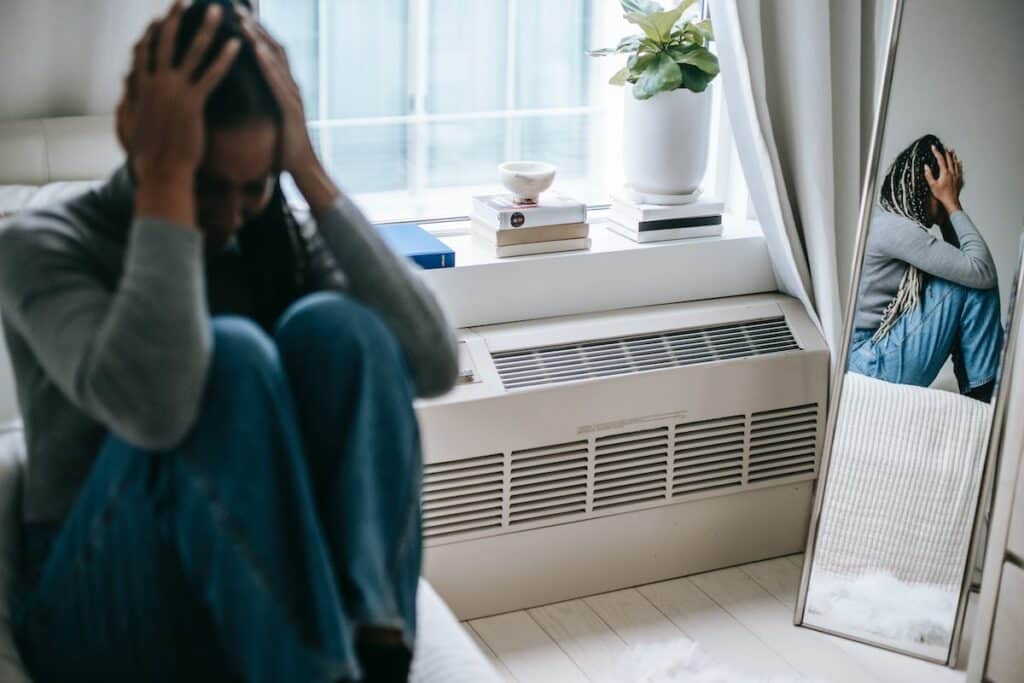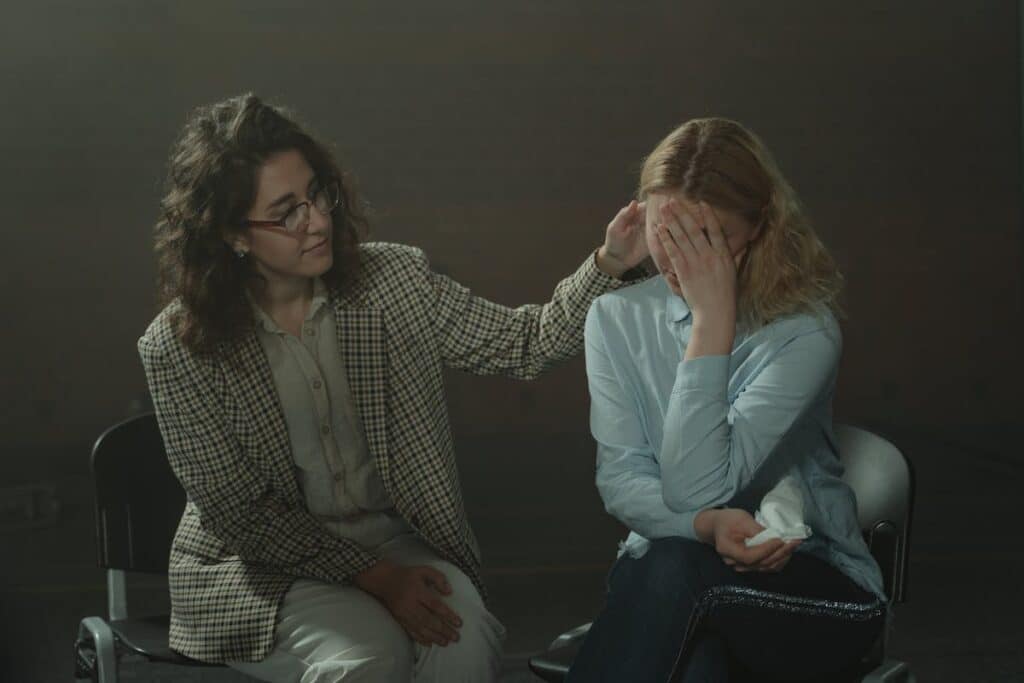Modern life is nothing short of a mixed bag, especially for young adults caught in the whirlwind of social pressures, career aspirations, and personal issues. Add to this the heightened pace and demands of a bustling city like Dublin, and the stress can intensify. As a result, young adults here, like everywhere else, often find themselves grappling with anxiety.
Although struggling with anxiety might seem like an incessant, uphill battle, you can manage it with the help of therapy. Anxiety counselling in Dublin is often an underrated yet highly effective tool for those coping with constant stress and anxious thoughts.
Understanding Anxiety Disorder
Anxiety is a feeling of worry, unease, or nervousness. It is the mind and body’s natural response to stressful or dangerous situations. While anxiety is a normal human emotion, it becomes a concern and turns into a disorder when it becomes a constant companion, impacting one’s actions and reactions.
Anxiety disorder involves more than temporary worry or fear. It’s also far more than just feeling stressed. It’s an excessive and persistent feeling of worry, fear, or apprehension, combined with a range of physical symptoms like rapid heartbeats, nervousness, sweaty palms, or even a dry mouth.
It often manifests as:
- Racing thoughts: Your mind feels like a runaway train, replaying worries and concerns on a loop.
- Physical symptoms: Tightness in the chest, rapid heartbeat, sweating, and difficulty sleeping are common physical responses.
- Social avoidance: Anxiety can make social interactions feel overwhelming, leading to withdrawal from friends and activities.
- Difficulty concentrating: Focusing on tasks becomes challenging when your mind is preoccupied with anxious thoughts.
The severity, duration, and effects of anxiety disorder can often disrupt a young adult’s daily life. Additionally, symptoms may wax and wane over time but can become particularly strong during times of high stress or tension.

How Prevalent Is Anxiety Among Young Adults in Ireland?
For many individuals in their late teens and twenties in Dublin, anxiety has become an unwelcome but all-too-familiar guest. In fact, levels of anxiety among this demographic have been on a sharp rise not just in Dublin but all over the country.
Compared to just seven years ago, the number of young Dubliners experiencing anxiety has doubled. This is one of the key findings in a comprehensive 2019 study exploring the mental health of Irish youth aged 12-25.
The data from the survey showed that the dramatic rise transcends age groups, impacting both adolescents and young adults. In the 12-19 age group, 49% exhibited anxiety levels outside the norm. Meanwhile, 58% of respondents in the 18-25 age group fell outside the normal range for depression and anxiety.
Notably, 22% of adolescents (aged 12-19) reported going through severe or significant anxiety. It was also noted that young adult women reported higher levels of anxiety compared to men.
These alarming findings underscore the escalating prevalence of anxiety among young adults in the country. But people should remember that statistics aren’t mere numbers; they represent a generation wrestling with unseen worries. Stakeholders need to come together to strategise collective, effective interventions for managing anxiety and promoting mental health, especially since experts believe that figures are likely higher now because of the pandemic.
Top Causes of Anxiety Disorder in Young Adults
Numerous triggers may be contributing to the rising prevalence of anxiety disorders in young adults in Ireland. Academic stress is a significant factor, with the pressure to succeed and fear of failure often looming large. Whether it’s concern over grades, a competitive environment, or worry about future job prospects, it’s not uncommon for young adults to grapple with crippling levels of anxiety.
Equally essential to understand is the role of career progression – or the anxiety over the perceived lack thereof. Uncertainty over career choices or fears about job stability and income can contribute to a constant state of worry.
The widespread use of social media also profoundly influences anxiety. Amidst an evolving digital age, the relentless pursuit of societal validation on various platforms doesn’t serve to alleviate but rather exacerbates this mental strain. The constant exposure to curated highlight reels and relentless comparisons fuel self-doubt and feelings of inadequacy.
Financial stress is another trigger that cannot be overlooked. The cost of living in Dublin may make young adults more susceptible to anxiety disorders. Even in instances where individuals are employed, the fear of living paycheck to paycheck can lead to chronic worry and stress.
Furthermore, Dublin’s frenetic pace and sometimes isolating city life can contribute to anxiety levels. These external situations might compound internal feelings of worry and fear for young adults already dealing with the transition to independence.
With complex stressors and less life experience to draw from, it’s understandable that anxiety is a top mental health concern for young adults in Dublin. Fortunately, professional help in the form of anxiety counselling is readily available for young adults all over the country.
How Can Anxiety Counselling in Dublin Support Young Adults?
Anxiety counselling provides numerous benefits that can help young adults better manage their mental health. Some key benefits include:
Increases Self-Awareness
Anxiety counselling delves into the underlying causes of your anxieties. Through discussion, assessment, and therapeutic activities, you gain greater awareness of your unique triggers, anxiety patterns and thought processes. This insight makes it easier to catch anxious thoughts/behaviours early and course-correct.
Improves Coping Skills
Counselling equips you with a personalised toolbox of techniques, like deep breathing, mindfulness and relaxation exercises, and meditation to deal with anxiety as it arises. By regularly practising these skills under the guidance of an experienced anxiety counsellor, you can strengthen your resilience and ability to calm yourself in triggering situations.
Teaches Strategies to Prevent or Minimise Anxiety
With your counsellor’s help, you learn to reframe unhelpful thoughts and intentionally replace them with more realistic perspectives. You also create action plans to avoid or minimise exposure to common triggers. Together, these strategies reduce the frequency and intensity of anxiety episodes with continued practice.
Strengthens Mental Muscles
Just like physical exercise builds physical strength, anxiety counselling helps build mental resilience. You learn to face challenges head-on and bounce back from setbacks with greater confidence.
Boosts Self-Esteem
Anxiety often chips away at a person’s self-confidence. Counselling helps you rediscover your strengths and cultivate self-compassion, leading to a healthier self-image.
Unlocks Potential
When anxiety is under control, you can focus on your goals and aspirations. Counselling can help you identify your strengths and interests, guiding you towards academic, professional, and personal fulfilment.
Builds a Support Network
Anxiety often thrives in isolation. Therapists can help you connect with other young adults in Dublin facing similar challenges. Sharing experiences and building a supportive community can alleviate feelings of isolation and foster a sense of belonging.
Strengthens Existing Relationships
Counselling can equip you with better communication skills to navigate and nurture relationships with friends, family, and romantic partners. This can significantly improve your overall well-being.
A Closer Look at Anxiety Counselling in Dublin
Anxiety counselling typically involves scheduled sessions with a licensed mental health therapist or counsellor, either in-person at their office or virtually through video chat. The counsellor will aim to create a welcoming, judgement-free environment where you feel comfortable opening up. This setting allows you to explore their feelings, thoughts, and behaviours, which might be contributing to their anxiety.
During the initial phase of anxiety counselling, you will undergo a comprehensive assessment, which will help the therapist understand your background, present challenges, and the degree of anxiety experienced. This evaluation establishes a more personalised treatment plan addressing your specific needs.
As these counselling sessions progress, you and the counsellor will work collaboratively to set achievable goals, monitor progress, and make necessary adjustments. This collaborative approach allows young adults like you to actively participate in your recovery.
In general, anxiety counselling in Ireland incorporates various therapeutic approaches tailored to individual needs. Cognitive Behavioural Therapy (CBT) and Acceptance and Commitment Therapy (ACT) are commonly utilised to assist individuals, particularly young adults. CBT involves identifying detrimental thought patterns and behaviours while aiding in developing effective coping strategies. ACT, on the other hand, encourages acceptance of the individual experience, diminishing the power anxiety might hold over the individual.
In conclusion, recognising and addressing anxiety is a significant step toward improved mental health. The counselling process provides you with support, insights, and proven strategies to better cope with anxious thoughts, emotions, and behaviours.
While confronting your mental health struggles can feel daunting, remember that you are not alone. Countless others have embarked on this journey and found their strength through anxiety counselling. Seeking support should never be seen negatively. Instead, it should be considered a courageous act of self-care.
Are you or someone you know struggling with anxiety? We have a team of professionals experienced in providing anxiety counselling in Dublin. Call us today on 015240708 and let us help you manage your anxiety and find lasting relief.
Royalty-free images supplied from Pexels as part of SEO service from 3R





